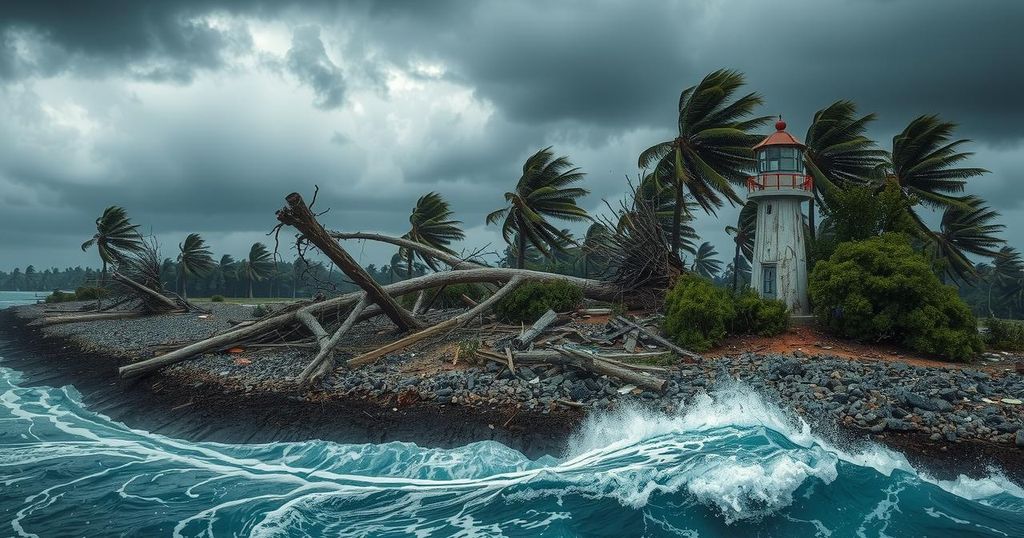Cyclone Chido has devastated the southeast African region, especially Mayotte and Mozambique, potentially causing thousands of deaths and injuries. Local authorities fear that casualties may significantly rise as access to several areas is restricted. The French government has initiated emergency responses, including a curfew and daily supplies of aid, while cholera threatens further public health crises. Experts warn of increasing storm intensity linked to climate change.
Tropical Cyclone Chido has wreaked havoc across the southeast African region, particularly impacting the French territory of Mayotte and Mozambique. This devastating cyclone, which intensified rapidly before landfall, potentially resulted in the deaths of thousands and left widespread destruction in its wake. Local authorities in Mayotte report alarming estimates of possible casualties, with hospital records confirming at least 22 fatalities and over a thousand injuries, although many areas remain unreachable due to the disaster.
In response to the crisis, the French government has established a curfew in Mayotte to maintain order, while daily supplies of food, water, and medical assistance are being flown in. The humanitarian situation is exacerbated by reports from Médecins du Monde indicating the presence of cholera on the island, with officials warning of an impending epidemic if access to safe water is not secured. In Mozambique, official reports have tallied at least 34 deaths, while neighboring Comoros has entered a week of national mourning, bracing for a possible rise in casualty figures.
The United Nations Office for the Coordination of Humanitarian Affairs revealed that Cyclone Chido has affected over 174,000 individuals in Mozambique, 34,000 in Malawi, and 64,000 in Comoros. French weather service Météo-France described Cyclone Chido as the most powerful storm to hit Mayotte in over nine decades. Meteorologist Alex Baker of the University of Reading highlighted that the extensive devastation may be attributed to factors such as low-income communities and the region’s limited resilience to such disasters.
While no casualties were reported in Mauritius, government officials indicated that a significant proportion of structures suffered damage. The impact of climate change on Cyclone Chido’s formation remains a topic of investigation. Meteorologist Helen Hooker noted that exceptionally high sea temperatures in the Indian Ocean this year likely contributed to the storm’s evolution into a formidable Category 4 cyclone, with winds exceeding 140 mph.
In summary, Cyclone Chido has caused extensive devastation across southeast Africa, particularly affecting Mayotte and Mozambique, with potential implications for hundreds, if not thousands, of lives lost. Immediate humanitarian efforts are underway in response to the dire needs of affected communities. Experts emphasize the increasing vulnerability of small islands to such climatic events, raising concerns about the role of climate change in exacerbating storm intensity.
Original Source: news.mongabay.com




